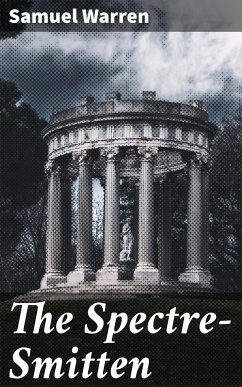
The Spectre In The Cart (eBook, ePUB)
1908
Versandkostenfrei!
Sofort per Download lieferbar
2,49 €
inkl. MwSt.
Weitere Ausgaben:

PAYBACK Punkte
0 °P sammeln!
In "The Spectre In The Cart," Thomas Nelson Page masterfully weaves a tapestry of Southern life steeped in the rich tradition of American folklore. Through a blend of vivid imagery and lyrical prose, Page immerses readers in a haunting narrative that juxtaposes themes of memory, trauma, and the spectral traces of the Civil War's legacy. The book stands out for its Gothic elements, evocative characterizations, and a profound exploration of Southern identity amidst a rapidly changing social landscape, reflecting the tensions between past and present. Thomas Nelson Page, a prominent Southern writ...
In "The Spectre In The Cart," Thomas Nelson Page masterfully weaves a tapestry of Southern life steeped in the rich tradition of American folklore. Through a blend of vivid imagery and lyrical prose, Page immerses readers in a haunting narrative that juxtaposes themes of memory, trauma, and the spectral traces of the Civil War's legacy. The book stands out for its Gothic elements, evocative characterizations, and a profound exploration of Southern identity amidst a rapidly changing social landscape, reflecting the tensions between past and present. Thomas Nelson Page, a prominent Southern writer and advocate for the Lost Cause narrative, draws from his own experiences in Virginia, a state deeply affected by the Civil War. His literary background, infused with the Southern Romantic style, informs his storytelling, allowing him to authentically capture the region'Äôs complex emotions. Page'Äôs keen interest in preserving Southern culture and history compelled him to illuminate the spectral echoes of a society grappling with its own ghosts, both literal and metaphorical. I highly recommend "The Spectre In The Cart" for readers who seek not only an engaging tale but also a deeper understanding of Southern heritage and the psychological ramifications of its tumultuous history. Page'Äôs work will resonate with those intrigued by the interplay between folklore and historical narrative, making it a poignant addition to the American literary canon.
Dieser Download kann aus rechtlichen Gründen nur mit Rechnungsadresse in A, B, BG, CY, CZ, D, DK, EW, E, FIN, F, GR, H, IRL, I, LT, L, LR, M, NL, PL, P, R, S, SLO, SK ausgeliefert werden.












